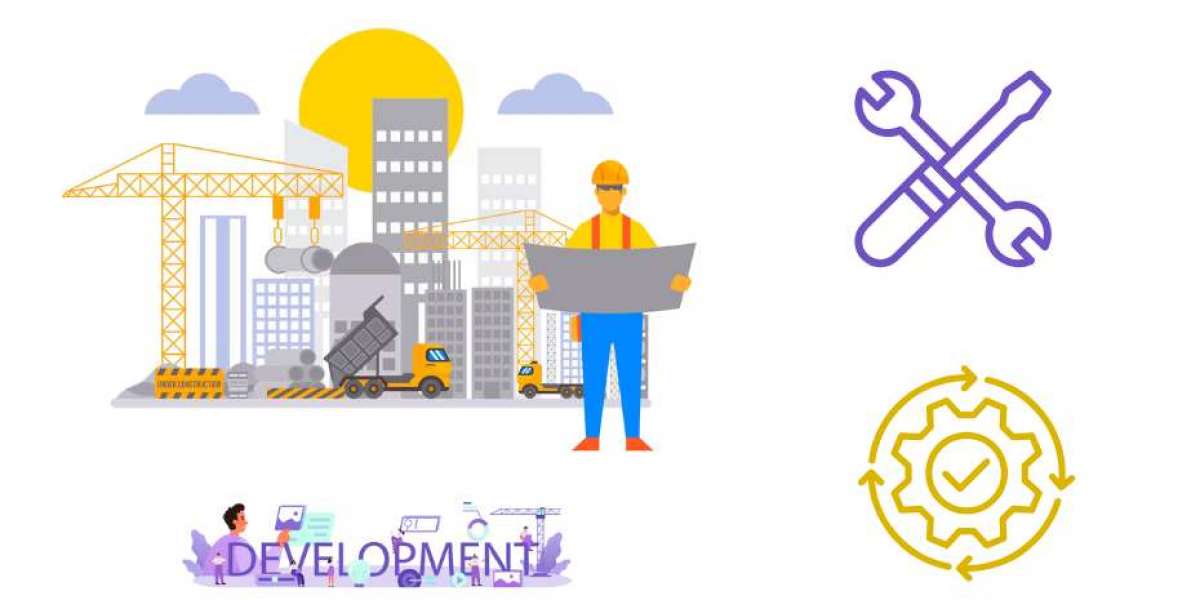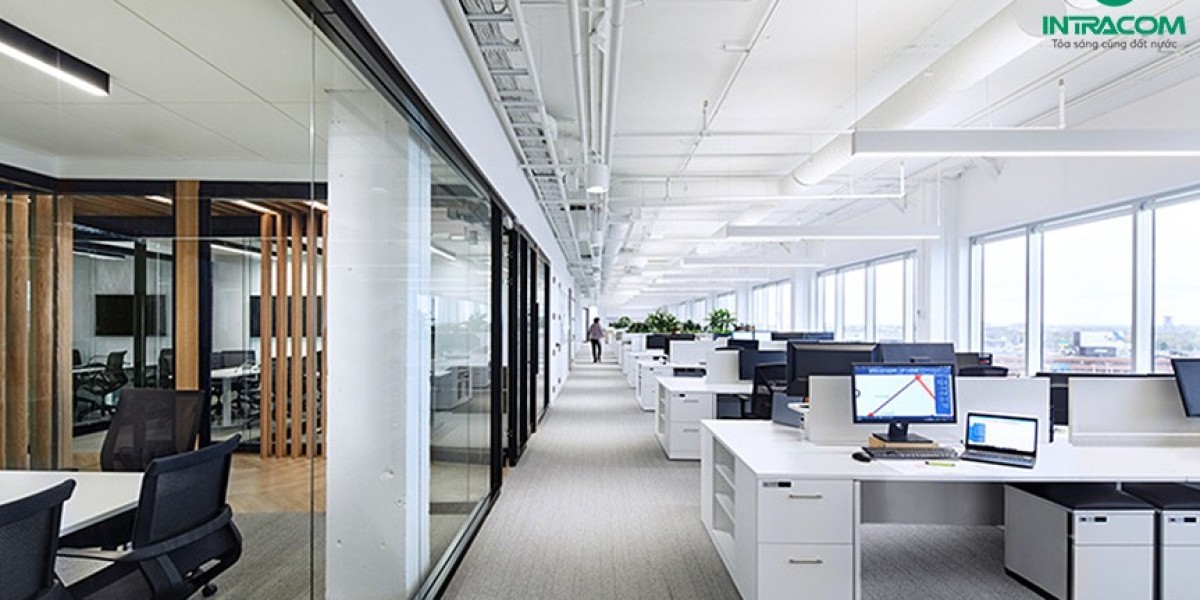The construction industry is undergoing a significant transformation driven by technological advancements and changing market demands. As construction companies strive to improve efficiency, reduce costs, and enhance project management, the role of Enterprise Resource Planning (ERP) software becomes increasingly critical. This blog explores the future of construction ERP software, focusing on its unique needs and the best solutions available.
Understanding ERP Software for the Construction Industry
ERP software integrates various business processes into a unified system, allowing construction firms to manage everything from project planning and resource allocation to financial management and compliance tracking. For construction companies, this means having a centralized platform that can handle complex project requirements while ensuring real-time data access and improved collaboration among teams.
Key Features of Construction ERP Software
Project Management: Efficiently manage project timelines, budgets, and resources.
Financial Management: Track costs, manage invoices, and ensure compliance with financial regulations.
Resource Allocation: Optimize the use of labor, materials, and equipment across multiple projects.
Mobile Access: Enable on-site workers to access real-time data and update project statuses from anywhere.
Customizable Dashboards: Tailor reports and dashboards to meet specific business needs.
The Role of Custom Software Development Companies
To fully leverage the potential of ERP systems, many construction companies are turning to custom software development companies in the UAE. These firms specialize in creating tailored solutions that address specific business challenges within the construction sector.
Benefits of Custom ERP Solutions
Tailored Functionality: Custom ERP solutions can incorporate unique features that align with a company's operational processes.
Scalability: As businesses grow or project demands change, custom solutions can be easily scaled to accommodate new requirements.
Integration Capabilities: Custom ERP systems can seamlessly integrate with existing tools and platforms used by construction firms.
Emerging Trends in Construction ERP Software
As we look ahead, several trends are shaping the future of construction ERP software:
Integration of Artificial Intelligence (AI): AI is revolutionizing how construction companies operate by providing predictive analytics that helps in forecasting project risks, labor needs, and material requirements. AI-powered tools can also automate routine tasks such as scheduling and resource allocation, freeing up valuable time for project managers.
Cloud-Based Solutions: Cloud technology is becoming increasingly important for the construction of ERP systems. Cloud-based solutions offer flexibility, scalability, and cost-effectiveness while enabling teams to access real-time data from any location. This accessibility enhances collaboration among team members, leading to better decision-making.
Enhanced Mobile Capabilities: With many construction projects taking place in remote locations, mobile access to ERP systems is crucial. Future ERP systems will likely offer advanced mobile functionalities that allow managers and workers to communicate and manage tasks on-site.
Internet of Things (IoT) Integration: IoT devices can collect real-time data from construction sites, which can be fed into ERP systems for analysis. This integration allows for predictive maintenance of equipment and enhanced worker safety by monitoring site conditions.
Focus on Sustainability: As sustainability becomes a priority in the construction industry, future ERP systems are expected to incorporate features that help track environmental impact and resource usage. This focus not only helps companies comply with regulations but also meets the growing demand for sustainable practices.
Advanced Data Analytics: The ability to analyze vast amounts of data will become more sophisticated in future ERP systems. Enhanced reporting tools will provide deeper insights into cost management, supplier performance, and overall project efficiency.
Selecting the Right ERP Software for Your Construction Business
When choosing an ERP system for your construction business, consider the following factors:
User-Friendly Interface: A simple interface ensures that all team members can navigate the system efficiently without extensive training.
Real-Time Data Access: Ensure that your chosen ERP solution provides real-time data access to keep all team members informed and enable quick decision-making.
Customization Options: Look for software that allows you to customize workflows and reports according to your specific business needs.
Integration with Existing Tools: Your ERP system should seamlessly integrate with other software solutions you currently use, such as accounting tools or customer relationship management (CRM) systems.
Mobile Accessibility: Choose an ERP solution that offers mobile access so that on-site workers can enter data and communicate updates from their devices.
The Development Process for Custom Software- Construction ERP
Developing custom ERP software involves several key stages:
Requirements Gathering: Collaborate with stakeholders to identify specific needs and challenges within your organization.
Design Phase: Create a blueprint for the software's architecture, user interface, and functionalities based on gathered requirements.
Development Phase: Software developers begin coding the application while ensuring adherence to best practices in software development.
Testing Phase: Conduct thorough testing to identify any bugs or issues before deployment.
Deployment Phase: Roll out the new system across your organization while providing training for users.
Maintenance and Support: Ongoing support is crucial to address any issues that arise post-deployment and ensure that the software continues to meet evolving business needs.
The Impact of AI on Construction ERP Software
AI's integration into construction ERP software is set to transform how projects are managed:
Predictive Analytics: AI algorithms analyze historical data to predict future trends in project costs, timelines, and potential risks.
Automation of Routine Tasks: By automating repetitive tasks like scheduling or invoicing, AI frees up time for project managers to focus on strategic planning.
Safety Monitoring: AI can enhance safety by analyzing site conditions in real-time and alerting teams about potential hazards.
Conclusion
The future of construction lies in leveraging advanced technologies through effective ERP solutions tailored specifically for unique industry needs. By embracing cloud-based systems with AI integration in software development, mobile capabilities, IoT connectivity, and a focus on sustainability, construction companies can enhance their operational efficiency while staying competitive in a rapidly evolving market.
Custom software development plays a crucial role in this transformation by offering tailored solutions designed to meet specific challenges faced by construction firms today. As technology continues to advance, those who adapt will find themselves at a significant advantage in delivering successful strategies for projects efficiently and sustainably.
In summary, investing in robust construction ERP software is no longer optional; it has become essential for navigating the complexities of modern construction projects effectively. Whether through off-the-shelf solutions or custom developments from specialized software developers, embracing these technologies will shape the future landscape of the construction industry significantly.
To read more about BIM Software as a Game-Changer








